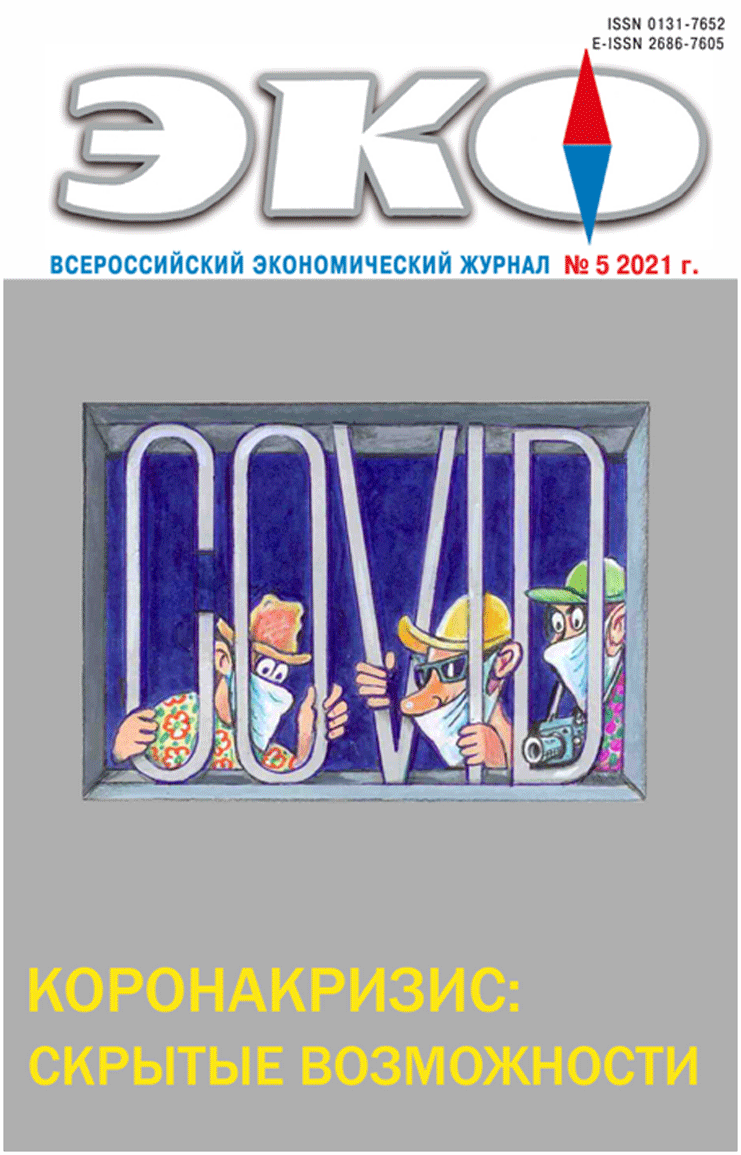DEVELOPMENT OF SCIENCE AND EDUCATION
The Educational Trajectories of Three Russian Generations: from Pre-school Preparation to Vocational Education
Published 2021-05-05
Keywords
- educational trajectories,
- continuous education,
- generations,
- the youth,
- levels of education
- pre-school education,
- public education,
- vocational education,
- career ...More
How to Cite
1.
Loginov Д. The Educational Trajectories of Three Russian Generations: from Pre-school Preparation to Vocational Education. ECO [Internet]. 2021 May 5 [cited 2026 Mar. 1];51(5):137-54. Available from: https://ecotrends.ru/index.php/eco/article/view/4251
Abstract
The paper reviews the educational strategies of Russian generations. Three post-Soviet generation groups (“the reform generation”, “the Millennials” and “the digital generation”) are highlighted. They have several similar features forming the social norms of Russian society, but they also differ to allow a comparative analysis of implemented educational trajectories. The study covers the cycle starting from pre-school preparation to obtaining the first vocation education. It has been revealed that Russian generations demonstrate a steady trend towards maximizing the educational potential right from the pre-school stage. It is shown that representatives of the youngest generation and their parents go through the school stage with a high level of involvement in the creation of knowledge and skills, that may be practically applied when they pass on to the next level of education. However, social ties, which are significant for a successful transition, gradually lose their importance. The obtained data allow us to assume that there is a tendency for secondary vocational education to become a part of successful educational strategies. Addressing the intergenerational differences in professionalization indicates a “fresh approach” of the youngest generation to successful employment, which is associated with the sphere of state administration and enforcement structures to a considerably higher degree. The analysis is based on sociological survey data from 1600 representatives of highlighted generations, conducted by the Center of Economics of continuing education of RANEPA in 2019. The paper is prepared within the framework of the state task implementation of RANEPA.References
- Авраамова Е. М. Молодёжь в социально-экономической и этической системе координат // Общественные науки и современность. 2017. № 1. С. 86–98.
- Авраамова Е. М., Логинов Д. М. Роль школьного образования в развитии человеческого капитала // Экономика региона. 2014. № 2(38). С. 53–62.
- Баранов А. О., Слепенкова Ю. М. Методологические проблемы анализа воспроизводства человеческого капитала в России // ЭКО. 2018. № 48(2). С. 5–17. DOI: http://dx.doi.org/10.30680/ECO0131–7652–2018–2–5–17
- Горшков М. К., Ключарев Г. А. Непрерывное образование в контексте модернизации. М.: ИС РАН, ФГНУ ЦСИ, 2011. 232 с.
- Константиновский Д. Л. Динамика неравенства. Российская молодёжь в меняющемся обществе: ориентации и пути в сфере образования (от 1960-х годов к 2000-му). М.: Эдиториал УРСС, 1999. 344 с.
- Константиновский Д. Л. Молодёжь 90-х: самоопределение в новой реальности. М.: ЦСО РАО, 2000. 222 с.
- Константиновский Д. Л., Вахштайн В. С., Куракин Д. Ю. Кросс-региональный анализ развития непрерывного образования: результаты исследования // Вопросы образования. 2007. № 2. С. 293–312.
- Константиновский Д. Л., Попова Е. С. Молодёжь в сфере образования: ожидания и мотивация // Россия реформирующаяся: ежегодник: вып.15. М.: Новый Хронограф, 2017. С. 154–174.
- Константиновский Д. Л., Попова Е. С. Отношение молодёжи к образованию в современной России // Общественные науки и современность. 2016. № 1. С. 5–19.
- Мангейм К. Проблема поколений // Новое литературное обозрение. 1998. № 2 (30). С. 7–47.
- Плискевич Н. М. Человеческий капитал в трансформирующейся России. М.: Институт экономики РАН, 2012. 231 с.
- Радаев В. В. Прощай, советский простой человек! // Общественные науки и современность. 2018. № 3. С. 51–65. DOI: 10.7868/S0869049918030048
- Рощина Я. М. Семейный капитал как фактор образовательных возможностей российских школьников // Вопросы образования. 2012. № 1. С. 257–277. Doi: 10.17323/1814–9545–2012–1–257–277
- Советский простой человек: Опыт социального портрета на рубеже 90-х / Голов А. А., Гражданкин А. И., Гудков Л. Д. и др.; под ред. Левады Ю. А.. М.: Мир, Океан, 1993. 300 с.
- Чередниченко Г. А. Российская молодёжь в системе образования: от уровня к уровню // Вопросы образования. 2017. № 3. С. 152–182.
- Шереги Ф. Э. Российская молодёжь: настроения ожидания ценностные ориентации. М.: Центр социального прогнозирования и маркетинга, 2013. 93 с.
- Широв А. А., Потапенко В. В. Рынок труда и качество человеческого капитала. // ЭКО. 2018. № 48(2). С. 18–34. DOI: http://dx.doi.org/10.30680/ECO0131–7652–2018–2–18–34
- Шубкин В. Н. Начало пути. М.: Молодая гвардия, 1979. 224 с.
- Шубкин В. Н. Социологические опыты. М.: Мысль, 1970. 288 с.
- Шувалова О. Р. Международные индикаторы участия населения в непрерывном образовании // Вопросы образования. 2010. № 2. С. 178–186.
- Becker G. S. (1964). Human Capital. New York: Columbia University Press – 187 p.
- Laal M. (2012). Benefits of Lifelong Learning // Procedia – Social and Behavioral Sciences. Vol. 46. Pp. 4268–4272.
- Lassnigg L. (2005). Lifelong learning, school to work and labour market transitions. Position paper workpackage 4. TLM.NET 2005 Working Paper No. 2005–06. Amsterdam: SISWO/Social Policy Research – 38 p.
- Strauss W., Howe N. (2009). The Fourth Turning: What the Cycles of History Tell Us About America’s Next Rendezvous with Destiny. Crown. 400 p.

